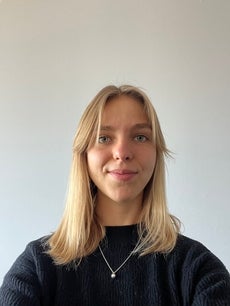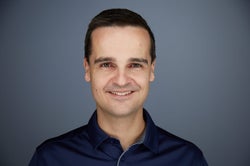Northern Digital Inc. entrusts Waterloo co-op students to advance medical procedure technology
By: Jed Bick (he/him)
Students provide transferable skills from classroom learning to develop key technology that will shape the future of surgery.
Northern Digital Inc. (NDI) specializes in high-precision optical and electromagnetic tracking systems which are incorporated into its customer’s computer-aided surgical navigational systems. Founded in 1981 by a University of Waterloo alumnus, NDI sells its tracking systems as an Original Equipment Manufacturer (OEM) to customers who then integrate them into systems for hospitals or medical clinics.
Medical professionals utilize tracking systems for various procedures, including brain and spinal surgeries. These systems employ one of two technologies: optical tracking, which uses infrared light and retroreflective markers, or electromagnetic tracking, which utilizes field generators and sensors. The tracking systems provide precise navigational data, enabling clinicians to perform procedures more efficiently, quickly, and with less invasiveness—ultimately leading to improved patient outcomes.
Making a difference and improving outcomes in the medical world is something that attracted Serena Wittenberg (she/her), a Biomedical Engineering co-op student at Waterloo, to pursue a work term at NDI.
“One of the reasons I went into biomedical engineering was that I wanted to work at a medical company because I want to make a difference in people's health,” says Wittenberg.
Her experience at NDI has been successful, and Wittenberg is currently in her second co-op term with the company as a firmware developer. In her first term, Wittenberg utilized her biomedical engineering skills to complete multiple tasks and projects. She verified NDI’s product application programming interface (API) responsiveness and wrote Python code to test and maintain the product’s firmware.

Serena Wittenberg, Faculty of Engineering co-op student
Wittenberg’s supervisor, Greg Niestrawski (he/him) (BASc ’11), a firmware developer at NDI, praised her product testing skills for resolving specific bugs.
“I had her lead the investigation and she ended up making some firmware changes that resolved the problem,” says Niestrawski.

Greg Niestrawski (BASc ’11), firmware developer at NDI
In Niestrawski’s experience, developing firmware requires a steep learning curve, but Wittenberg and other Waterloo co-op students are equipped for the challenge. As a Waterloo alum, Niestrawski is familiar with the skills and experience co-op students bring to the workplace and knows he can trust them from the get-go.
“I can take a student who's got a reasonable background in engineering and bring them up to speed relatively quickly,” says Niestrawski. “My Waterloo co-ops are writing useful code on the second day they're here.”
Waterloo co-op students can pivot and adapt on the fly
The trust NDI bestows in co-op students motivated Wittenberg to return to the company for another term, this time for eight months.
“They treat you like a full-time employee,” Wittenberg says. “No matter what the task is, if you want to do it and if it's part of your skill set and interests, they will let you do it. It's very nice to have that type of responsibility because you feel valued.”
As her time at NDI progressed, Wittenberg expressed an interest in cybersecurity. Niestrawski encouraged her to give it try, so Wittenberg performed some evaluation and prototyping of security improvements for system upgrades that protect devices from hackers and similar security threats. Her process involved writing code to implement certain product requirements. After passing peer reviews including manual and automated testing, the code was incorporated into the product.
Like many other Waterloo co-op students, Wittenberg showed confidence in her ability to adapt from project to project as she utilized the skills and knowledge she developed in her studies at the University.
Waterloo students are well-prepared for professional jobs due to co-op and because of the courses and the technical background the school provides. Waterloo also has a good reputation with big tech companies, and they view co-ops as students with strong backgrounds.
“Waterloo co-op students provide companies in the tech and health sectors with innovative solutions to push product development forward,” says Marlene Griffith Wrubel (she/her), account manager for Co-operative and Experiential Education at the University of Waterloo. “Their educational background and skillsets prepare them for the workplace experience from day one.”
The future looks bright for NDI as the company has the potential to improve patient outcomes while providing a positive workplace experience and valuable opportunity for Waterloo co-op students to contribute meaningfully.
“NDI is very supportive, and I think the company really values its employees overall, especially co-ops,” Wittenberg says. “Since NDI was started by Waterloo alum, I find the company’s perspective makes it a great employer for utilizing and evaluating co-op students.”